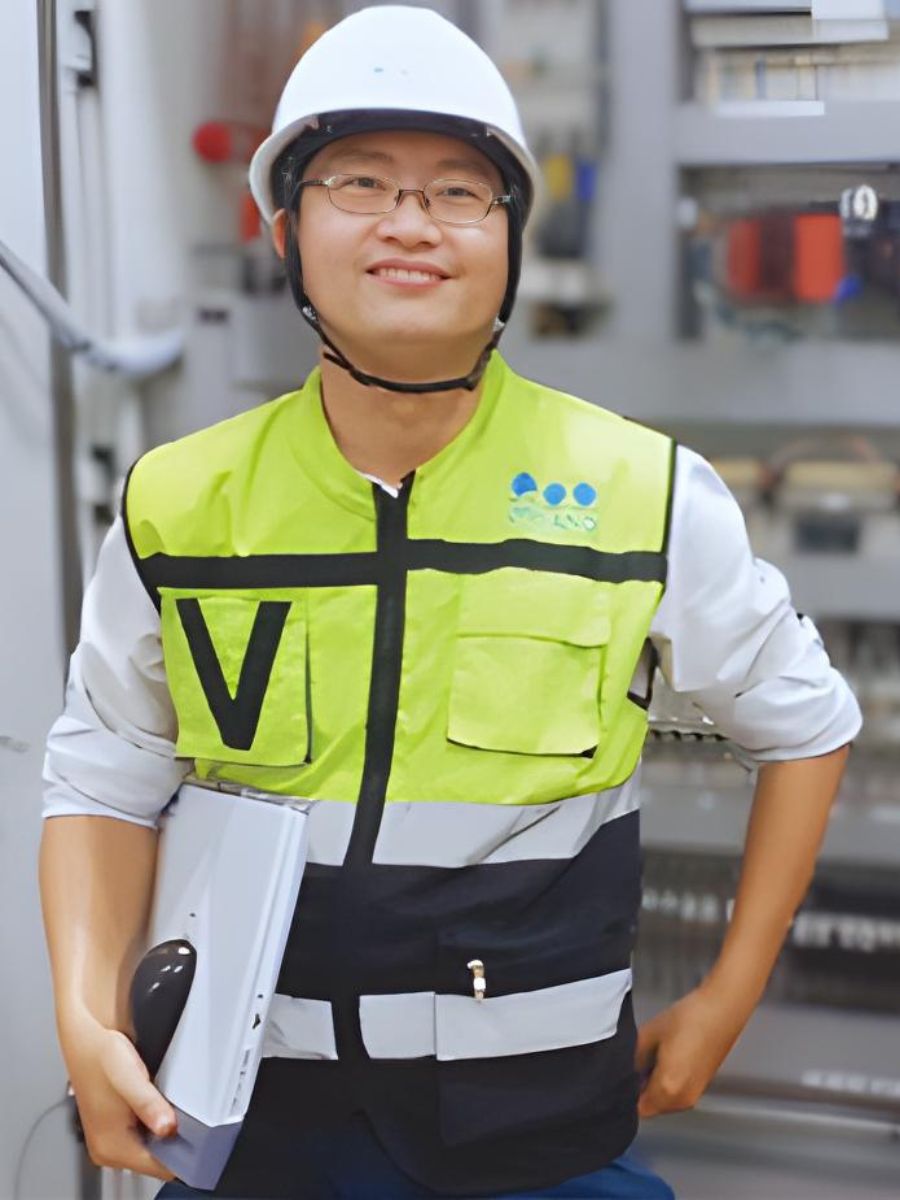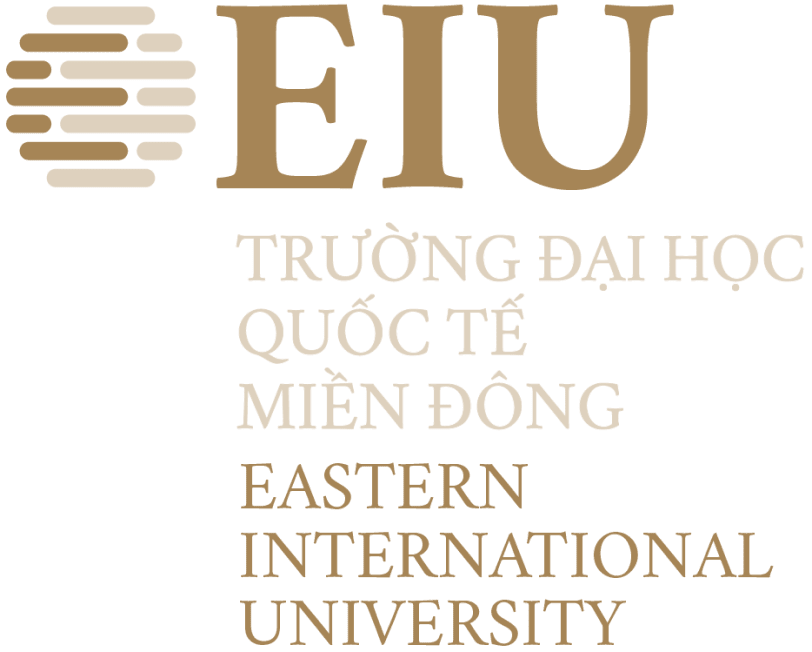Program
Electronics and Telecommunications Engineering
Length of time
4 years
Program code
7520207
Tuition fees
VND 27.000.000/year*
Minimum required accumulated credits
190 credits
(quarter system – 3 semesters/year)
Introduction
4 years
190 credits (quarter system – 3 semesters/year)
VND 27.000.000/year*
*Tuition fees are guaranteed not to increase for four years from the date of enrollment
The Electronics and Telecommunications Engineering program applies advanced technologies and techniques in electronics, semiconductor circuits, digital systems, and telecommunication networks to create a wide range of devices and products such as smartphones, tablets, smart home appliances, autonomous vehicles, satellites, and medical imaging diagnostic equipment. These technologies facilitate seamless information exchange between people across different spaces and times, while also improving the quality of daily life worldwide.
A Bachelor of Electronics and Telecommunications Engineering (ETE) at Eastern International University (EIU) is equipped with the ability to design electronic circuits, master advanced electronic engineering technologies, and build, operate, and maintain electronics–telecommunications systems such as telecommunication networks, IoT systems, and embedded systems. Students in this program are trained in specialized areas including circuit design, telecommunication systems, high-frequency engineering and antennas, embedded systems, as well as signal and image processing. Additionally, graduates are skilled in system programming and mobile application development.
Specialized orientations within the ETE program include:
- Integrated Circuit (IC) Design: Analyzing and designing digital and analog integrated circuits, calculating circuit parameters, analyzing semiconductor device operations, optimizing algorithms in circuit layout design, and mastering IC manufacturing processes.
- Embedded Systems: Designing hardware and developing embedded software integrated into electronic devices and Internet of Things (IoT) systems such as smartphones, next-generation automobiles, smart homes, as well as IoT applications in healthcare and agriculture for control, monitoring, and data processing.
- Telecommunication Systems: Analyzing, designing, installing, and operating telecommunication systems (wireless networks, 5G mobile networks, fiber optic networks), ensuring fast, reliable, and secure data transmission.
- High-Frequency Engineering and Antennas: Analyzing, designing, and developing circuits and systems using high-frequency electromagnetic waves for transmitting and receiving data in satellite communications, radar, and remote sensing systems.
- Signal and Image Processing: Developing techniques for representing and transforming information contained in signals (speech, audio, images, video). Applications include multimedia systems and medical image processing. Designing algorithms for signal and image processing using machine learning and deep learning methods, and programming deep neural network architectures.
About the School of Engineering

Offering majors in Electrical Engineering, Mechatronics Engineering, Automation and Control Engineering, Electronics and Telecommunications Engineering, and Mechanical Engineering, the Faculty of Engineering focuses on enhancing learners’ capabilities and creating added value through highly integrated and continuously updated training programs.
Program highlights
The Electronics and Telecommunications Engineering program at EIU is designed with a strong emphasis on quality and international standards:
- The curriculum is developed based on the Electrical & Computer Engineering programs accredited by ABET at leading engineering universities in the United States.
- The program has received support and feedback from enterprises in the field regarding graduate competency standards, through direct workshops and meetings.
- Faculty members bring international experience from countries such as Singapore, Spain, the USA, Germany, France, and Korea.
- The program emphasizes English-medium teaching and learning. Graduates are expected to achieve IELTS 6.0, giving them a competitive edge and the ability to adapt to international working environments.
- Students benefit from a wide range of well-equipped laboratories and workshops, supporting both teaching and research in specialized areas, including: Electronics Workshop, Fabrication Laboratory (FabLab), Electronics Lab, Microprocessors Lab, Communication Systems Lab (CSL), IC Design Lab (ICD), Embedded Systems Lab (ESL), RF Engineering & Antenna Lab (RFA), and Signal & Image Processing Lab (SIP). In addition, students receive strong support from EIU’s affiliated science and technology centers.
- The program places great importance on hands-on experience through electronics clubs, field trips, internships, and opportunities to conduct scientific research alongside faculty members.
- Graduates have pathways to pursue postgraduate studies at prestigious universities both in Vietnam and abroad.
Program learning outcomes
Upon completion of the program, students will achieve the following Program Learning Outcomes (PLOs):
PLO 1. Apply knowledge of political theory, social sciences, and law to professional and daily life; apply knowledge of national defense and security to foster patriotism; demonstrate self-discipline in physical training to improve personal health.
PLO 2. Apply knowledge of mathematics and natural sciences to describe, calculate, and simulate processes, components, and systems in the field of Electrical and Electronics–Telecommunications Engineering.
PLO 3. Identify, define, and model problems in Electronics and Telecommunications Engineering; analyze and evaluate corresponding processes, components, and systems.
PLO 4. Design and evaluate components, systems, and engineering solutions in Electronics and Telecommunications Engineering to meet desired technical specifications as well as economic, environmental, public health, safety, and social welfare constraints.
PLO 5. Employ general skills (communication, foreign language proficiency, teamwork, and project management) to work effectively in multidisciplinary teams and international environments.
PLO 6. Demonstrate proficient practical skills to adapt effectively to specialized tasks in Electronics and Telecommunications Engineering, within the context of technological advancement.
PLO 7. Investigate and research complex issues in Electronics and Telecommunications Engineering systematically, including literature review, experiment design and execution, data analysis and interpretation, to describe electrical–electronic processes and synthesize information for valid conclusions.
PLO 8. Demonstrate integrity, professional ethics, and social responsibility in engineering-related contexts.
PLO 9. Recognize the need for and demonstrate readiness for lifelong learning; pursue self-study and independent research in new knowledge areas across the broad field of Electronics and Telecommunications.
Foreign Language Requirement: To graduate, students in the Electronics and Telecommunications Engineering program must achieve a minimum English proficiency equivalent to IELTS 6.0.
Academic program
MÔI TRƯỜNG HỌC TẬP
Job Opportunities
Graduates of the Electronics and Telecommunications Engineering program are equipped to work at multinational corporations in the telecommunications infrastructure sector (Viettel, VNPT, Nokia, Huawei, Ericsson) as well as leading enterprises in the fields of electronics and semiconductors in general. They can also pursue specialized areas such as circuit design, embedded systems and IoT, and system programming (Robert Bosch GmbH, Onsemi, FPT, Intel, IBM, Samsung, Apple, Nvidia, Jabil, BOS Semiconductors, Marvell Technology, TMA Solutions, DEK Technologies).
Career opportunities include positions such as:
- Electronics engineer responsible for designing, developing, and testing hardware for electronic circuits;
- Engineer specializing in the design, development, testing, and supervision of electronic–telecommunications devices and systems such as computers, TVs, radios, telecommunication and navigation systems, and radar systems;
- Telecommunications network engineer focusing on the design, installation, configuration, and implementation of hardware devices and software modules used in data transmission;
- Quality control engineer for electrical–electronic products and telecommunication systems, ensuring strict supervision of design, installation, and production processes;
- Engineer supervising the maintenance and repair of electronic systems, equipment, and products within organizations, while providing technical support and installation;
- Business manager or technical consultant for electronic–telecommunication products.
In addition, graduates from EIU with an IELTS 6.0 or higher are well-prepared to pursue postgraduate studies both in Vietnam and abroad, or to start their own business in various related fields.
CHIA SẺ TỪ CỰU SINH VIÊN

Nguyen Quang Luc
CSV khóa: 1
Khoa: School of Engineering
Công việc hiện tại: E&IC Engineer at Organo Việt Nam
“With the knowledge and skills I gained from EIU, I feel very confident at work, and this has been clearly reflected in my current job. It took me very little time to adapt and integrate into the working environment. The experience and English proficiency I acquired have also supported me greatly in developing my career.”

Nguyen Anh Duy
CSV khóa: 1
Khoa: School of Engineering
Công việc hiện tại: Technician Supervisor at Intel Products Vietnam - SHTP HCM
“The School of Engineering is well-equipped with modern facilities, and the practice-oriented curriculum allows students to gain substantial knowledge and skills before graduation. The lecturers are enthusiastic and highly knowledgeable in their fields. Both the faculty and the university genuinely care for and support their students. The program’s practical approach provides a solid foundation that helps graduates quickly adapt and grow in the real working environment.”

Nguyen Thanh Hiep
CSV khóa: 5
Khoa: School of Engineering
Công việc hiện tại: Manufacturing Engineer at Parker Meggitt Vietnam Company
“Studying at EIU was definitely the right decision for me. What convinced me most were the modern facilities, machinery, and equipment dedicated to engineering. The learning environment at EIU gave me the opportunity to experience real working conditions through site visits and long-term internships at major engineering companies. EIU equipped me with the essential skills to become an engineer, both in terms of technical expertise and language proficiency, through continuous projects throughout my studies. I had the chance to practice a wide range of professional skills, not only in automation but also in related fields such as mechanics and electronics.”

Hoang Duc Giang
CSV khóa: 4
Khoa: School of Engineering - Control and Automation Engineering
Công việc hiện tại: Process Engineer - R&D plant support Engineer, Bonfiglioli Vietnam Co., Ltd
“In today’s era of global industrialization, the field of Engineering always requires a strong and high-quality workforce. Besides having a solid technical foundation, engineering students also need to equip themselves with essential soft skills to quickly adapt to the dynamic international business environment. I believe these are exactly the outstanding advantages that EIU engineering graduates possess. I wish you all the best in choosing your true passion and achieving great success in your career!”

























